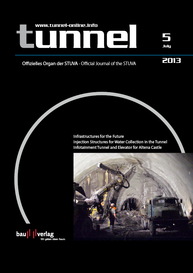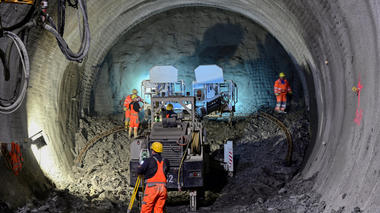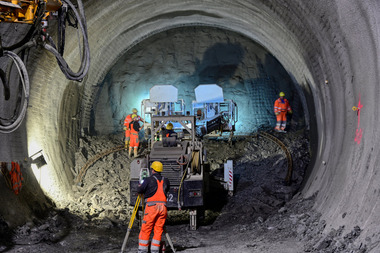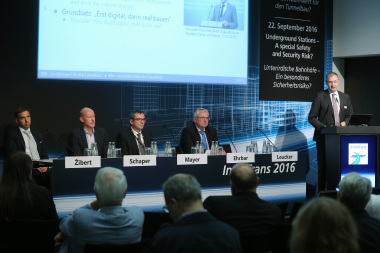Infrastructures for the Future
Progress requires mobility. And mobility requires infrastructures that function. It is hardly surprising that Europe is participating in the costs for upgrading the infrastructure and creating efficient links. As Germany is located at the heart of Europe, many arteries of the Trans-European networks (TEN-T) pass through Germany. The “Nuremberg-Berlin” (VDE-8) rail route, the Leipzig City Tunnel or Stuttgart 21 are classified as among the most important links sponsored by the EU.
Although Stuttgart is essentially underlining its role within Europe and not merely within Germany, no other project has caused more controversy than “Stuttgart 21”. However the ongoing debate surrounding Stuttgart 21 simply represents an example for the fact that an ever decreasing number of major projects in Germany are looked upon kindly. There are many reasons for this, some of which are highly individual: lengthy planning periods, political manoeuvres, public protests, cost-intensive alterations during the construction phase… As a result, in mid-April 2013 the Federal Ministry of Transport, Building and Urban Development formed a “reform commission for building major projects”, which is charged with working out counter-measures for the above-mentioned problems.
An introductory text presenting the commission underlines that the German construction industry and engineering skills enjoy an outstanding reputation worldwide. I am convinced that we have no need to hide ourselves – internationally either. But isn’t our international reputation being jeopardised by the intensive, ongoing discussion in the media; is our name still as good as it once was?
We are all called upon to play our part in promoting infrastructure projects and improving their image.
While on the subject of “promotion”, investment in future-oriented infrastructures makes a lot of sense especially in times of economic crisis and scepticism about Europe. You may recall the bonus provided for getting rid off old cars: it’s only some 4 years since the federal government awarded a premium of 2,500 € for purchasing a new car and scrapping a vehicle at least 9 years old. Altogether some 5 billion € were spent – corresponding roughly to the anticipated costs for Stuttgart 21 – providing the car industry with a high turnover. But what about the long-term effect? If one is to believe what’s being said in the press, the manufacturers – or at least some of them – are just as badly off as they were before.
Efforts to improve the infrastructure represent a considerably better investment. But it’s easy to realise that money for scrapping cars was readily available and the new vehicle acquired quickly. The period from the initial idea to getting things operational is lengthy – even excessive in the case of an infrastructure project. However ultimately projects are completed: the final tunnels on the VDE-8 routes were broken through last year and the City Tunnel is to be opened this year. It should be mentioned at this point that nowadays we profit from infrastructures, which were produced decades ago under similar or even greater adverse effects.
Furthermore, infrastructure projects do not simply promote the economy and employment over years if not decades, they also establish the basis for people’s mobility, which in itself represents the key for further economic development. And promotion of this kind does not merely impact for a few years like a “car-scrap bonus” but exerts an ongoing sustainable effect – that’s why engineering structures such as tunnels are devised to last for more than 100 years. If one looks back on the many old tunnels that are still in use, this is certainly the right decision.
Behavioural and methodical changes are necessary to promote underground construction and put it into perspective. We must embark on new paths, complete major projects more quickly and indicate their purposes more intensively.
But first we should discuss it all among ourselves. And which occasion could be more suitable than the family get-together for tunnellers, the next STUVA Conference in Stuttgart bearing the caption “Tunnels – Infrastructures for the Future”.
Jot down November 27 and 28, 2013. We look forward to welcoming you!
All the best,
Roland Leucker






